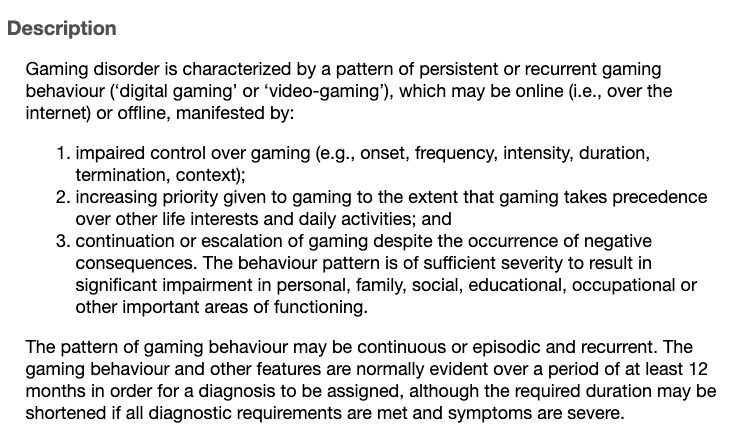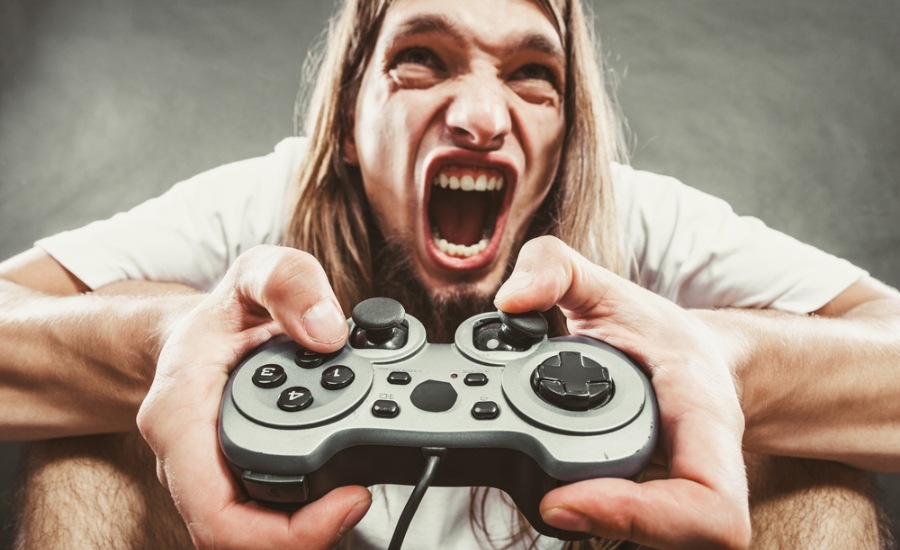Are you addicted to Fortnite, PUBG or any other game? If you have a ‘gaming disorder’ then you are officially suffering from an illness, according to the World Health Organization (WHO).
The WHO has decided to add gaming disorder to its list of recognized illnesses. The decision was taken by 194 members of the group at the 72nd World Health Assembly on 25 May 2019.
The 11th revision of the International Statistical Classification of Diseases and Related Health Problems (ICD-11) lists gaming disorder as an illness.
What is Gaming Disorder?
Here’s the WHO ICD-11 definition and characterization of gaming disorder:

There are a lot of people who play video games to an extent where they meet many of the criteria mentioned above. However, it is important to note that gaming disorder is a deeper issue than just playing video games obsessively.
Myths about Gaming Disorder
People who play video games for long hours are considered gaming addicts but it is important to differentiate between a disorder and a hobby.
A Twitter thread posted by Dr. John Jiao busts some myths about gaming disorder (also referred to as VGA). He makes it clear that it’s not about hours put into games. When gaming starts affecting other important aspects of life by taking precedence for a long period of time — it converts into gaming disorder.
There are a lot of hot takes out there today about the new video game addiction disorder. Let’s make one thing clear:
VGA is not about # of hours played. It’s when gaming takes precedence over health, hygiene, relationships, finances, etc.
Gaming itself is not a disorder.
— John Jiao, MD (@JohnJiao) May 25, 2019
Am I suffering from Gaming Disorder?
Taking leave from the office just to play a new release of a video game or spending the night inside to play rather than meet friends or maybe skipping a meal because you’re hooked to a game — is fine sometimes. However, if it occurs frequently, then you may be officially a gaming disorder patient.
So for instance, if your job is to stream video games and you play 12hrs/day but pay your bills, hang out with friends, have relationships, there’s no disorder.
If you play 4 hours a day but it causes you to abandon your family, gets you fired from work, etc, that’s disorder.
— John Jiao, MD (@JohnJiao) May 25, 2019
What about professional gamers and streamers?
As mentioned by Jiao, people who play games for a living, such as video game professionals, streamers, or just intense gamers, who play games for hours and hours; if they maintain a healthy life outside their gaming world, they don’t have gaming disorder.
Why might we need an official diagnosis, you ask?
Because otherwise people with real, legitimate video game addiction can often have trouble with insurance paying for their therapy, especially if they don’t fit any other diagnosis (not clinically depressed, for example).
— John Jiao, MD (@JohnJiao) May 25, 2019
Issues with diagnosing Gaming Disorder
There is always the possibility of having a gaming disorder wrapped up in depression and it can be difficult to separate the two.
Several gamers get defensive about gaming disorder or discard the theory altogether. This is probably because they haven’t experienced the self-destructive dependence on gaming that actual gaming disorder patients suffer from.
But with the inclusion of ICD-11, people who are actually suffering from it can get proper treatment for this kind of behavior, which is overall a positive thing for the world.










